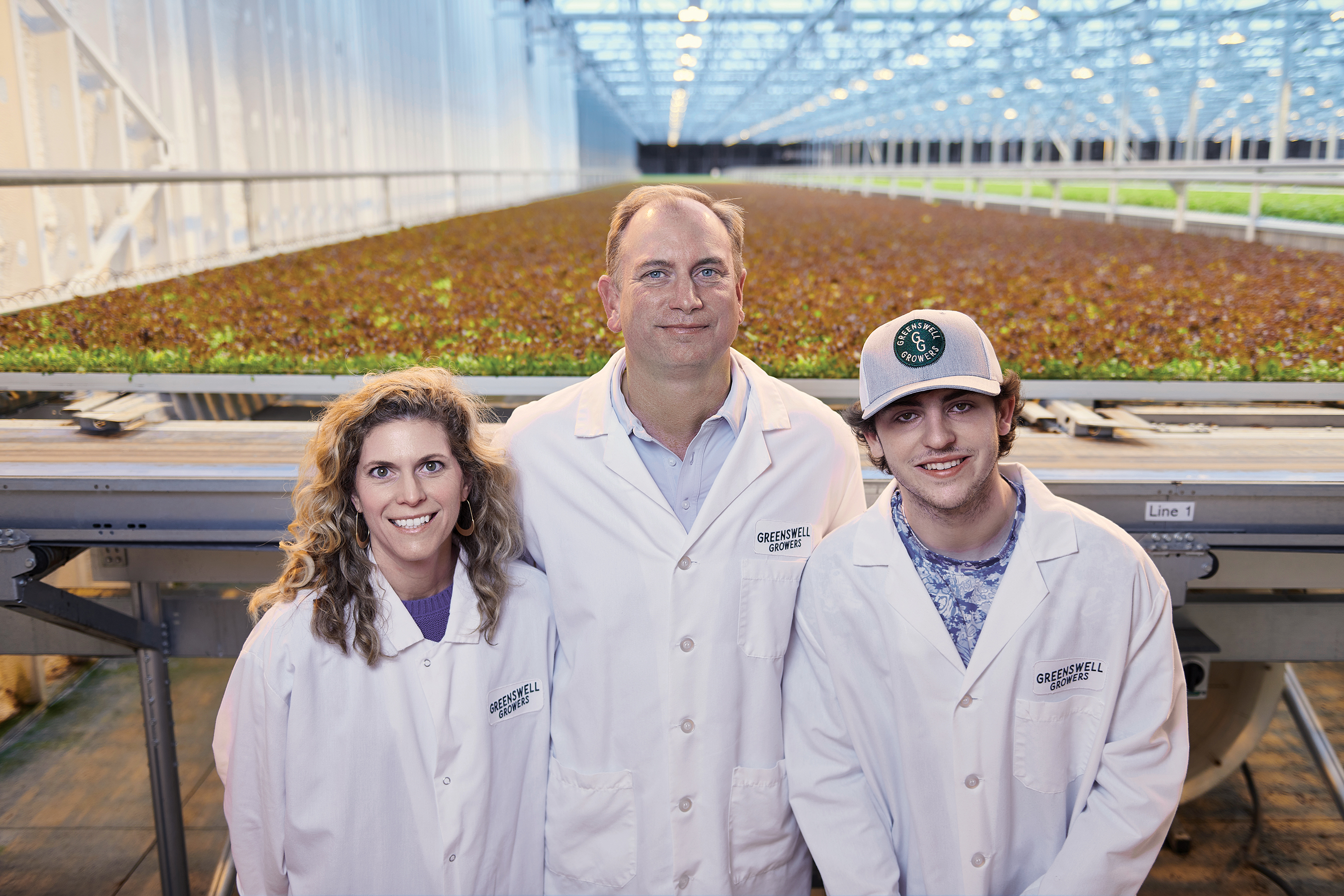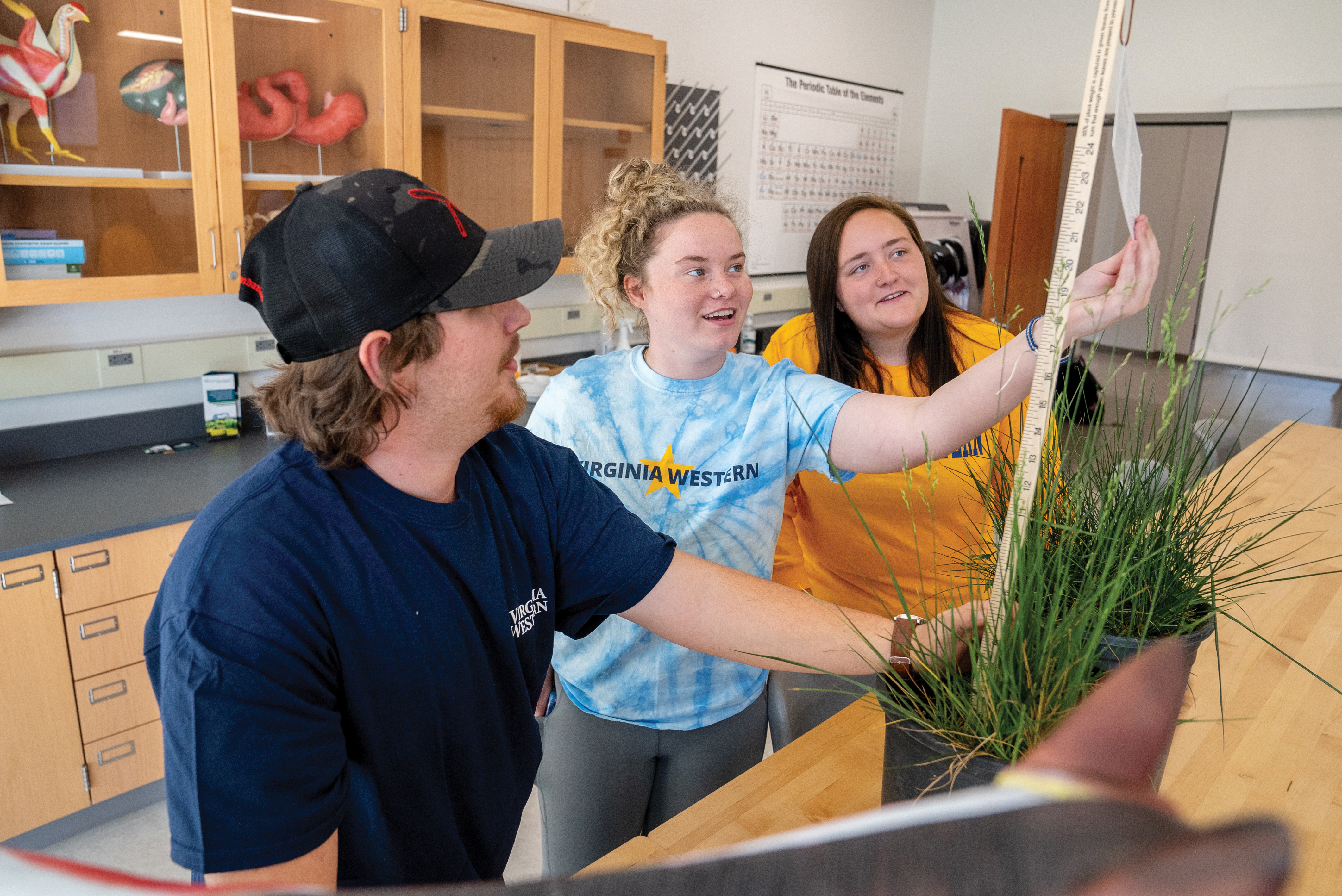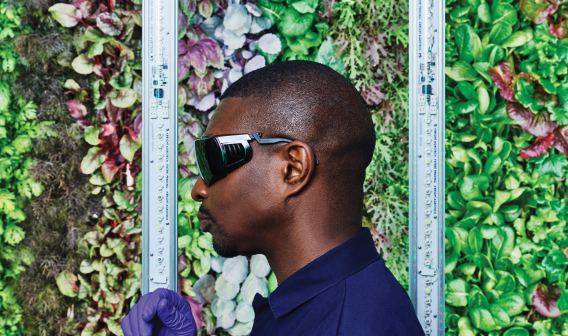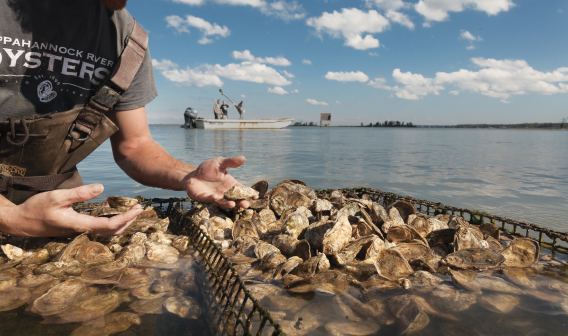Growers, Schools Create Novel Solutions to Build Tech-Savvy CEA Workforce
Labor shortages have long been a challenge in agricultural operations, spurring innovative new ways of operating. Today’s farms rely as much on GPS-guided technology and artificial intelligence-driven automation as they do on manual labor. However, these changes have created their own hurdles by demanding new skills of today’s agricultural workforce.
For colleges, universities, and high schools across Virginia, that means expanding agricultural programs to encompass all aspects of the science, technology, engineering, and math (STEM) curriculum.
“There’s a common misconception that agriculture is just working with animals, driving tractors, and playing in the dirt. But it’s not. It’s all that plus biology and chemistry and, even more now, it’s technology,” said Mallory White, Ph.D., assistant professor of biology and program head of agriculture in the School of STEM at Virginia Western Community College in Roanoke.
To prepare the Virginia workforce for this shift, institutions like Virginia Western are expanding education for agricultural technicians to include pathways into agriculture through mechatronics. Skillsets in robotics, automations, and computer coding are increasingly in demand across Virginia’s more than 41,500 farms.
Finding the Recruitment and Training Sweet Spot
It’s finding employees that have a passion for both coding and “playing in the dirt” that can prove difficult, as Carl Gupton, president of Greenswell Growers, has found. His company launched its controlled environment agriculture (CEA) operation in Goochland County near Richmond in 2020 with the goal of producing 28 times more leafy greens per acre than a traditional operation despite minimal human contact. Gupton says that the cultivation process is essentially hands-free from seed to fridge due to the use of automation.
At the time of its launch, this hydroponic greenhouse was only the eighth of its kind in the United States, meaning its niche technology requires specific technical expertise to maintain. “As a closed-environment growing system, if one thing breaks down, the whole system slows down,” Gupton says.
Knowing the small company needed a workforce with a unique range of skills, Greenswell worked with Goochland County Economic Development and reached out to local schools before its operations were up and running. It has since sourced interns from Virginia Tech and the local campus of J. Sargeant Reynolds Community College.
The company also formed partnerships with career and training programs in the school systems in Goochland County and neighboring Henrico County. By connecting with youth who didn’t fit the traditional post-high school path, the company aimed to mold a workforce with the cross-functional skills needed to support a modern CEA operation.
The framework Greenswell provided the schools for its internship needs includes a diverse range of skill sets: marketing, operations and logistics, mechatronics, and culinary arts. Gupton has found interns tend to lean more heavily on either mechanical or science skills, but Greenswell provides training to mitigate expertise gaps. Ultimately, he says, it’s less about what the students know than their desire to learn. “We can train them to turn a wrench. We’re looking for a willingness to do multiple tasks,” he said.
As agricultural programs open the door to more technically minded students, it may in fact become easier to find that willingness. “I had a student last semester who is a programmer,” Mallory White said. “He needed a science elective and [my class] was on his list. He’s actually gone on to take more agricultural classes this semester.”
Tech support, robotics, and data analysis are just some examples of the skills needed to run a modern CEA facility. To successfully develop an industry heavily laden with technology, engineers, plant scientists, and computer scientists have to be trained to work together.
A New Way of Looking at Agriculture
“Everybody is starting to hear about the changes in agriculture,” added Amy White, dean of science, technology, engineering, and mathematics at Virginia Western.
"I think for the technologically inclined, it piques their interest. So, we show them that there is a career pathway, it’s growing, and we want them to grow in the Commonwealth."
Educational institutions are hardly alone in this endeavor. “We understand how important finding and keeping workers are to businesses,” said Sara Worley, director of economic development for Goochland County. The department works with the public school system to match curriculum to support industry needs.
“In addition, Goochland County operates an Agricultural Center where the County and Economic Development office hosts local agricultural events that help get the next generation of workers more excited about a potential career in agriculture,” Worley said. “Goochland has a deep agricultural history, and we think it is important to honor those roots by providing support to our ag businesses.”
Amy White agrees, adding that the approach Virginia Western takes supports industry innovators like Greenswell as well as more traditional family-owned farms. “At the last Census of Agriculture, we had about 3,000 working farms in our service area, so there is a need,” she said. “If students wanted to go straight to a four-year program to pursue any aspect of agriculture, that path was pretty clear. But there was not a path for students who wanted to get some training and go back to work on their farms.”
Virginia Western is betting that its two-year Associate of Science degrees can help cover those knowledge gaps. By allowing students the flexibility to gain broad science and mechanical skill sets, these programs are bringing even smaller farms up to speed on emerging technological innovation.
These types of classes are becoming more common. As Worley notes, Reynolds Community College also offers an Associate in Applied Science in Horticulture Technology and a certificate in Sustainable Agriculture at its Goochland campus. In addition to its industry partners, Virginia Tech has partnered with the Institute for Advanced Learning and Research (IALR) to research and develop educational programming to further advance CEA operations like Greenswell’s.
“Modern farming, especially indoors, requires a workforce with training similar to high-tech manufacturing,” said Dr. Scott Lowman, vice president of applied research at IALR and co-director of the organization’s Controlled Environment Agriculture Innovation Center.
He added, “Tech support, robotics, and data analysis are just some examples of the skills needed to run a modern CEA facility. To successfully develop an industry heavily laden with technology, engineers, plant scientists, and computer scientists have to be trained to work together. This is happening at Virginia Tech and other universities across the state.”
Encouraged by investments in K-12 and higher education, today’s youth are discovering that there are more paths than they may have imagined to a successful future in agriculture. And these investments are paying off for students and farmers.
“The kids have been impressive,” Gupton said, speaking of the youngest interns that have helped his company every semester for the last two years. He admits that the company still uses spreadsheets developed by one high school student. He adds, “I’d hire every single one of these kids that have done this internship program in a heartbeat.”






